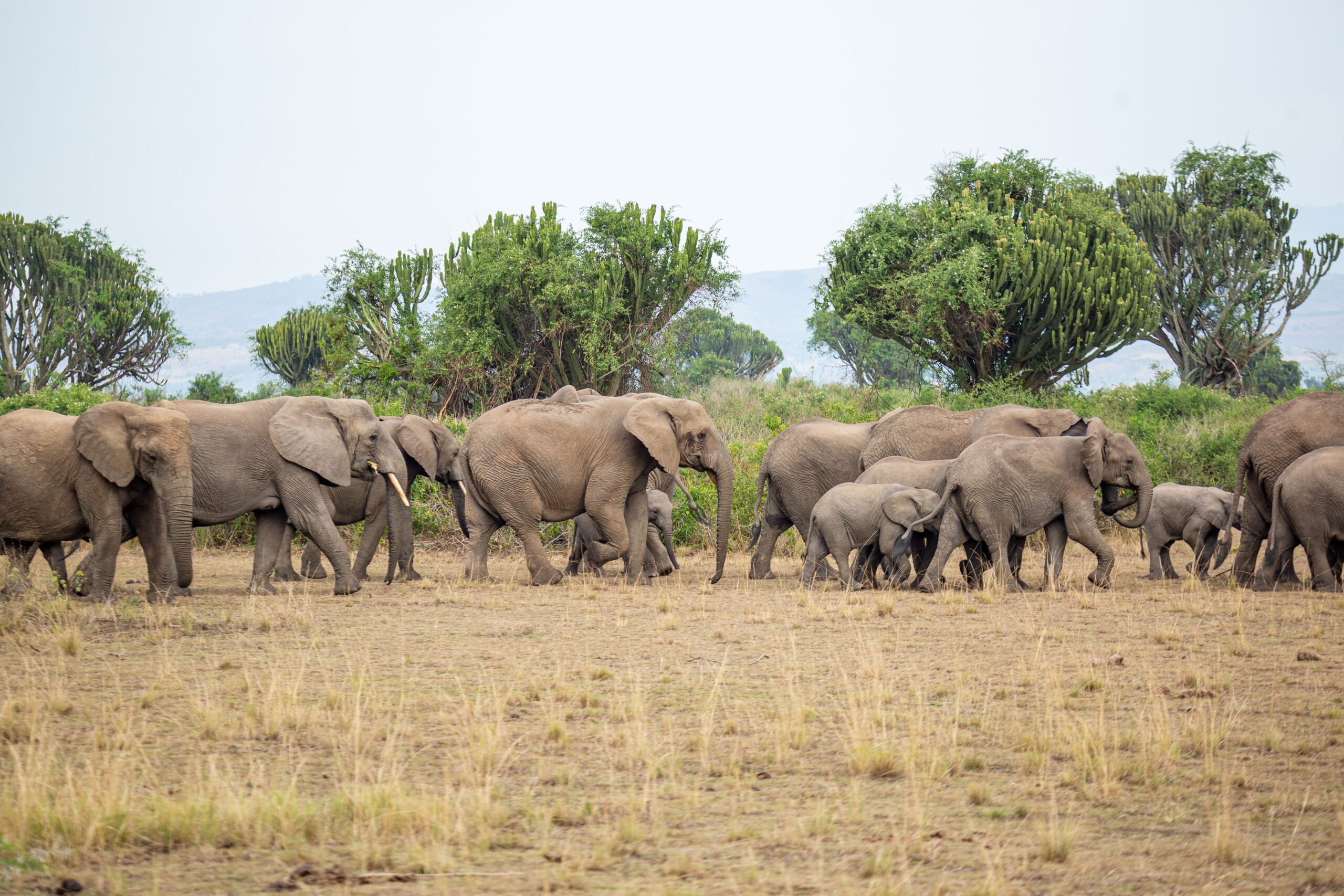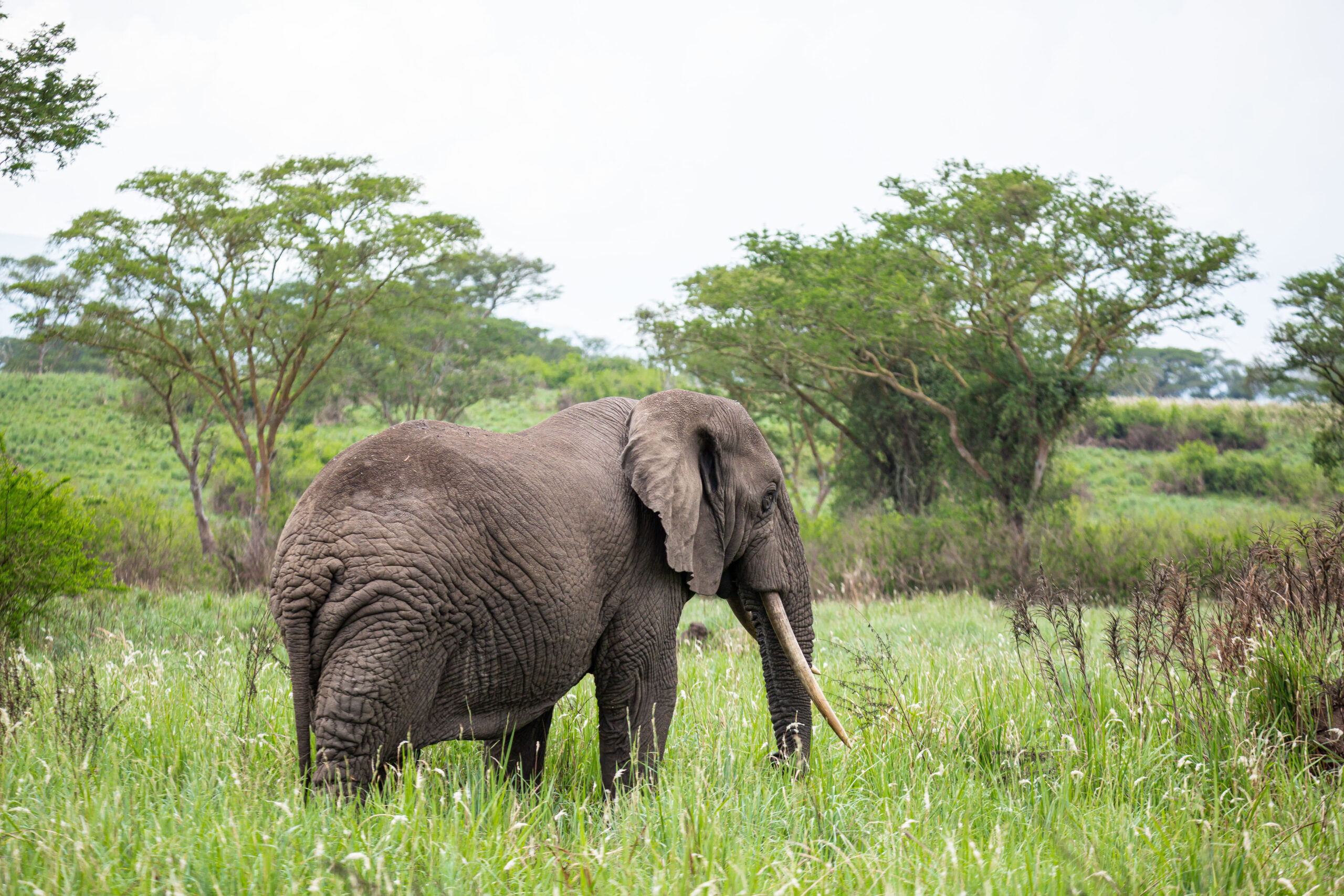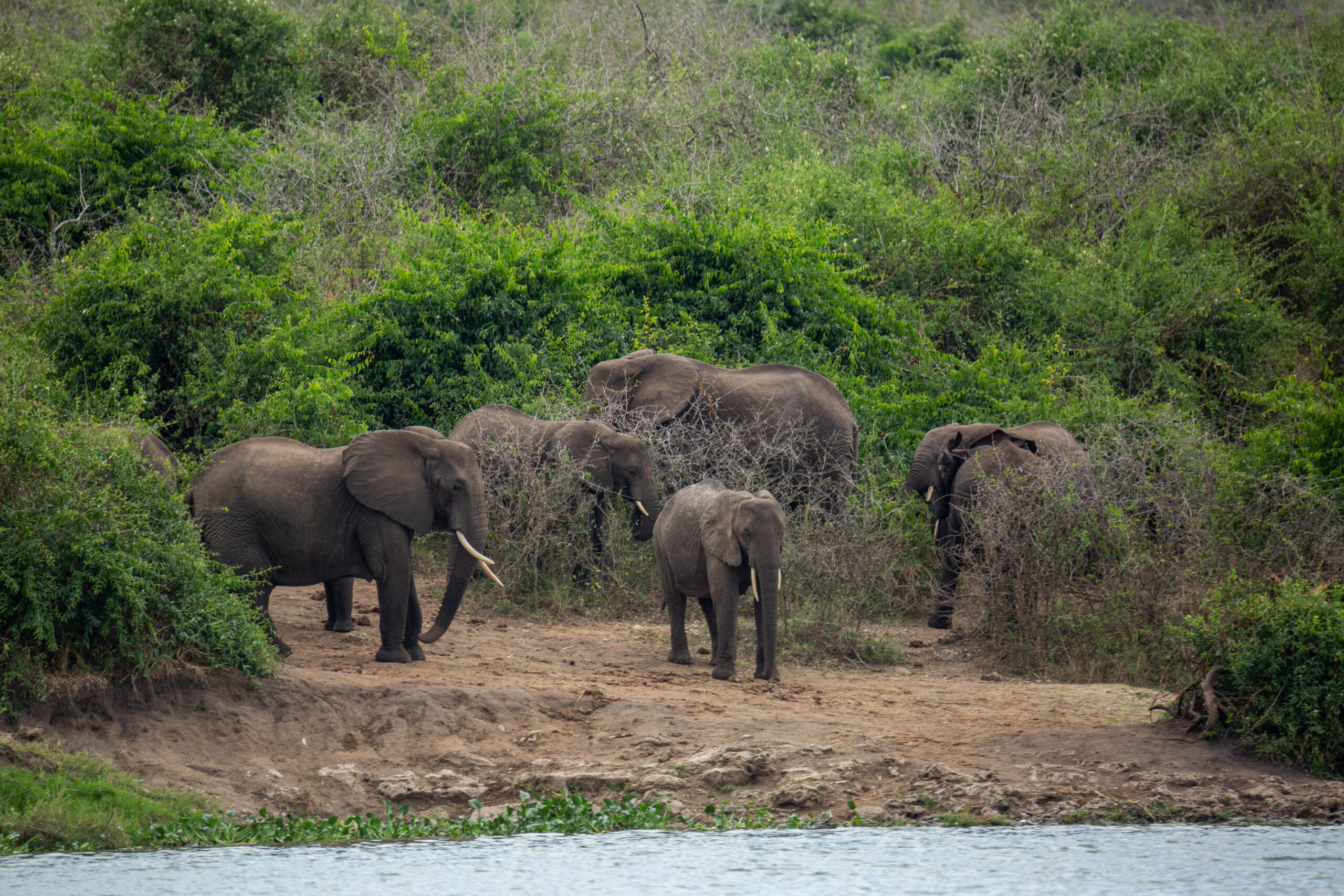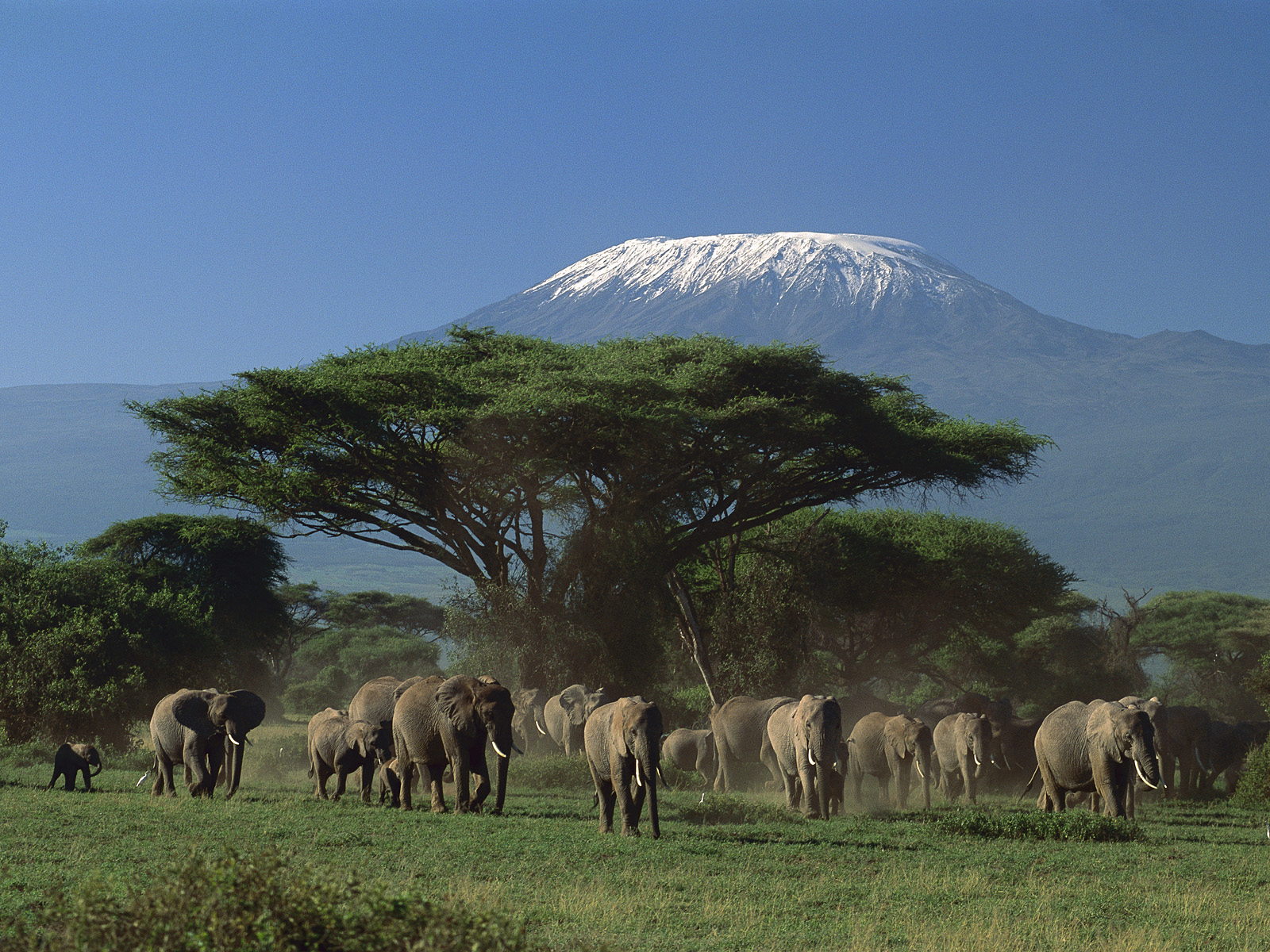
The African Elephant
The African elephant (Loxodonta africana) is one of nature’s most iconic and magnificent creatures known for its immense size, intelligence, and distinctive features. The African elephant holds a significant place in both the natural world and human culture. Explore the various aspects of the African elephant, including its physical characteristics, behavior, habitat, importance in ecosystems, and the challenges it faces in the ever-changing landscape of conservation.

Physical Characteristics:
The African elephant stands as the world’s largest land mammal. Adult males, known as bulls, can reach a towering height of up to 13 feet at the shoulder and weigh an astonishing 5 to 7 tons. Females, or cows, are slightly smaller, but they too command an impressive presence with a height of about 8 to 10 feet and a weight of 2.5 to 4 tons. Their distinctive features include large, flapping ears that resemble the shape of the African continent, a long and flexible trunk used for various tasks, and long, curved ivory tusks that grow from their upper incisors.
Book your 14 Days Uganda Wildlife Safari.
Behavior:
African elephants are highly social creatures, living in close-knit family units called herds. These herds are usually led by an older female, known as the matriarch, who possesses vast knowledge and experience. The herd’s members communicate through a variety of vocalizations, rumbles, and body language, displaying their complex emotional and social intelligence. Elephants also exhibit an impressive memory, which plays a crucial role in their ability to find water sources and navigate across vast territories.

Habitat:
African elephants are in diverse habitats across the continent, ranging from savannas and grasslands to dense forests and wetlands. They are known to migrate over extensive distances in search of food and water, adapting to different environments throughout their lives. Unfortunately, due to human activities such as deforestation and poaching, their natural habitat has been significantly reduced, leading to increased conflicts with human populations and threatening their survival.
Importance in Ecosystems:
African elephants play a vital role in shaping their ecosystems. As herbivores, they act as “ecosystem engineers” by creating clearings and paths through forests, which enhances plant diversity and allows sunlight to reach the forest floor. Their feeding behavior also helps control vegetation growth, thus affecting the structure of the ecosystem. Moreover, elephants are known to dig waterholes, which become crucial water sources for other animals during dry seasons. Their presence is thus intertwined with the health and balance of their habitats.

Conservation Challenges:
Despite being highly revered animals, African elephants face numerous challenges to their survival. The most significant threat comes from illegal poaching for ivory, driven by the lucrative global demand for elephant tusks. Poaching not only threatens individual elephants but also disrupts entire social structures within herds. Additionally, habitat loss and fragmentation due to human activities, such as agricultural expansion and logging, further endanger these majestic creatures.
Conservation Efforts:
Thankfully, numerous conservation organizations and governments are actively working to protect African elephants and their habitats. Initiatives involve strengthening anti-poaching measures, raising awareness about the consequences of ivory trade, implementing laws against illegal wildlife trafficking, and establishing protected areas and wildlife corridors to allow for safe migration. Local communities are also playing an essential role in conservation efforts by promoting sustainable livelihoods that support wildlife protection.

Conclusion:
The African elephant stands as a symbol of strength, intelligence, and resilience in the face of significant challenges. Its immense size and social nature inspire awe and fascination, while its role in shaping ecosystems highlights its importance in maintaining the delicate balance of nature. However, this iconic species faces threats that demand immediate action from individuals, communities, and governments alike. By supporting conservation efforts, we ensure that future generations will continue to marvel at the majesty of the African elephant. On addition to that, also benefit from the vital role it plays in our planet’s ecosystems.






